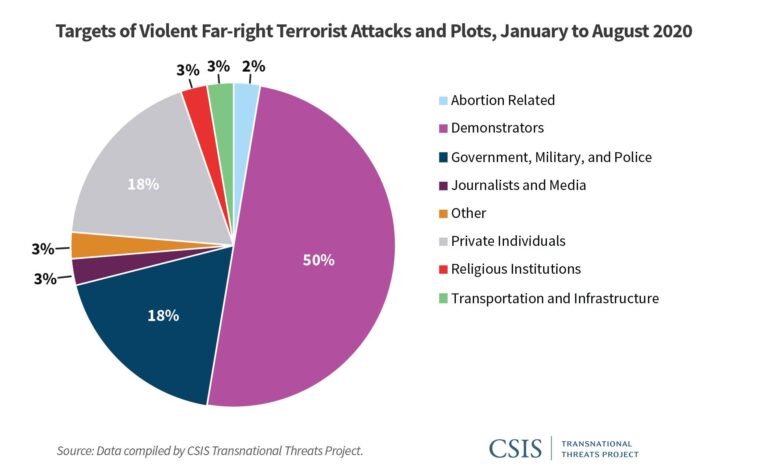Rethinking Domestic Terrorism Laws in the United States: Legal Gaps and Policy Challenges
Legal Uncertainties Surrounding Domestic Terrorism in America
Despite the escalating incidents of politically motivated violence within the U.S., there remains no distinct federal statute that explicitly defines or criminalizes “domestic terrorism.” This absence creates a complex legal landscape where federal and state authorities must rely on a patchwork of existing laws—such as those addressing weapons violations, hate crimes, or conspiracy—to prosecute offenders. Unlike international terrorism, which benefits from clear legislative frameworks like the USA PATRIOT Act, domestic terrorism is often ambiguously categorized, leading to inconsistent enforcement and prosecution across jurisdictions.
Several key factors contribute to this legal ambiguity:
- Constitutional Protections: Lawmakers tread carefully to avoid infringing on First Amendment rights, including free speech and peaceful assembly, which complicates the creation of precise legal definitions.
- Overlapping Jurisdictions: Coordination challenges arise among federal, state, and local agencies due to the lack of a unified statutory approach.
- Political Dynamics: Shifting priorities between administrations influence how domestic threats are perceived and addressed, affecting resource distribution and legal interpretations.
| Element | Current Status |
|---|---|
| Federal Legal Definition | Nonexistent |
| Commonly Applied Statutes | Weapons offenses, Hate crime laws, Conspiracy charges |
| Primary Legislative Concern | Balancing national security with civil liberties |
Complexities in Establishing a Federal Domestic Terrorism Statute
One of the most significant hurdles in legislating domestic terrorism is the difficulty in crafting a definition that captures the wide array of ideologies, tactics, and motivations involved. Unlike international terrorism, which is clearly delineated in federal law, domestic terrorism encompasses diverse acts ranging from hate-fueled violence to politically motivated attacks, making a one-size-fits-all legal definition elusive.
This definitional vagueness fuels debates about potential government overreach and the risk of infringing on constitutional freedoms. Consequently, Congress has been reluctant to enact a comprehensive statute that might inadvertently suppress lawful dissent or peaceful protest.
Enforcement complications also arise because domestic terrorism often intersects with other criminal offenses such as mass shootings or hate crimes. Without a dedicated federal statute, law enforcement agencies must piece together charges from existing laws, which can lead to uneven prosecution outcomes.
| Aspect | International Terrorism | Domestic Terrorism |
|---|---|---|
| Legal Clarity | Explicitly defined in federal statutes | Ambiguous and contested |
| Jurisdictional Authority | Federal agencies with international cooperation | Varies widely; federal role inconsistent |
| Prosecution Mechanisms | Dedicated terrorism laws | General criminal and hate crime statutes |
- Protection of Civil Liberties: Concerns about First Amendment rights limit legislative precision.
- Political Divides: Differing ideological perspectives hinder consensus on statutory language.
- Federal Disagreement: Lawmakers and agencies often diverge on threat prioritization and scope.
Impact on Law Enforcement and National Security Strategies
The lack of a dedicated domestic terrorism statute complicates law enforcement efforts to systematically identify, investigate, and prosecute homegrown violent extremism. Investigators frequently must focus on individual criminal acts rather than addressing the broader ideological threat, which fragments intelligence sharing and slows coordinated responses.
These legal gaps also challenge national security policies, which must delicately balance safeguarding civil rights with protecting communities. Law enforcement leaders advocate for enhanced legislative tools that would:
- Improve collaboration and information exchange among federal, state, and local agencies
- Define clear criteria distinguishing criminal conduct from protected political expression
- Equip authorities with proactive capabilities to disrupt plots while respecting constitutional boundaries
Without such reforms, the government risks being ill-prepared to counter the evolving nature of domestic threats, potentially leaving vulnerable populations exposed.
| Challenge | Consequences | Recommended Policy Action |
|---|---|---|
| Undefined Legal Category | Hinders effective prosecution | Pass clear, specific legislation |
| Fragmented Interagency Efforts | Delays in threat detection and response | Enhance intelligence sharing frameworks |
| Balancing Rights and Security | Potential erosion of public trust | Implement robust oversight and transparency |
Legislative Proposals to Explicitly Address Domestic Terrorism
In response to rising domestic extremist incidents, lawmakers have introduced proposals aimed at establishing a clear federal definition and legal framework for domestic terrorism. Current laws often fail to differentiate adequately between domestic and international threats, limiting law enforcement’s ability to respond effectively.
Key legislative recommendations include:
- Creating a dedicated federal statute specifically targeting domestic terrorism
- Strengthening coordination among federal, state, and local law enforcement agencies
- Allocating targeted funding for prevention, intervention, and community resilience programs
- Expanding intelligence capabilities with safeguards to protect civil liberties
Comparative data from countries with explicit domestic terrorism laws demonstrate higher prosecution rates and more effective deterrence. For example:
| Country | Domestic Terrorism Legislation | Reported Incidents (Past 5 Years) | Prosecution Success Rate |
|---|---|---|---|
| Canada | Yes | 85 | 90% |
| Australia | Yes | 70 | 87% |
| United States | No (Relies on general laws) | 230 | 70% |
Final Reflections: Navigating the Path Forward
The ongoing absence of a formal domestic terrorism statute in the U.S. underscores the intricate balance between ensuring national security and upholding constitutional freedoms. While existing laws provide some prosecutorial avenues, the lack of a clear, unified legal framework complicates efforts to address politically motivated violence effectively. As domestic extremism continues to evolve, policymakers, legal scholars, and community stakeholders must collaborate to develop solutions that protect both public safety and civil liberties in an increasingly complex threat environment.







